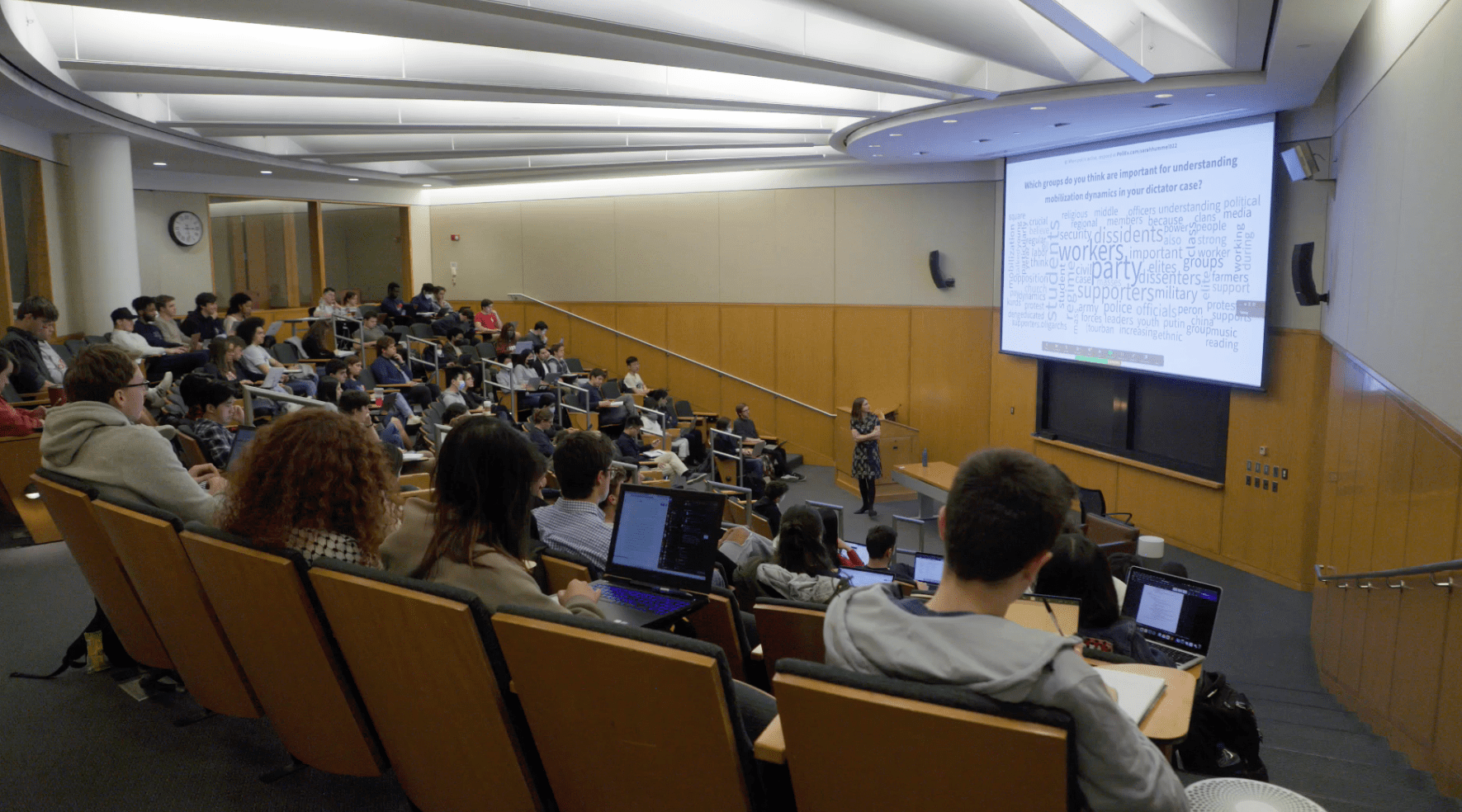A secondary field in Government is not one single thing. We encourage all students with either specific or eclectic political interests to explore our courses and faculty.
Requirements:
Students must take 5 courses in the Government Department:
- All courses must be taken for a letter grade and passed with a grade of B- or better, except for courses graded SAT/UNSAT (such as Gov 92r or a Freshman Seminar offered by a Government department faculty member).
- Only one course graded SAT/UNSAT may be counted towards the secondary.
- No courses taken Pass/Fail may count towards the secondary.
- No more than two foundational courses (Gov 10, 20, 30, and Gov 40) will be counted toward a secondary field; three courses must be 50 or above. (Note that the General Education courses on the list below are counted as equivalent to 1000-level Gov courses).
- Gov 91r (Supervised Reading and Research) cannot be used to fulfill Government secondary field requirements.
- Most courses outside the Government Department do not count for the secondary field. The only exceptions are listed below (see ”Courses that Count for the Secondary Field”). Please note that this list is different than the list of courses available to concentrators for concentration credit. For instance, no HKS classes can be used toward the secondary-field requirement.
Other Information:
Petitions of any kind for exceptions to Government secondary-field requirements will not be accepted.
Ordinarily, only one Harvard Summer School Government course, taught on campus by a Harvard Government Department faculty member, can be counted towards the secondary field in Government. Please click here for more information about Harvard Summer School courses for Government credit.
Please note that these secondary-field requirements differ from those for Government primary concentrators.
Courses that Count for the Secondary Field:
Unlike the requirements for Government primary concentrators, all courses taken for the Government secondary field must be offered in the Government Department (i.e., have a “Gov” number). The only courses outside the Government Department that can count for the secondary field are the following ones taught by Government Department faculty. Classes being offered during Fall 2024 are highlighted in bold:
- Freshman Seminar 71L: Can Democracy be Saved? (Daniel Ziblatt)
- Freshman Seminar 72X: Holding Politicians Accountable (Julie Weaver)
- Gen Ed 1008: Power and Identity in the Middle East (Melani Cammett)
- Gen Ed 1032: Res Publica: A History of Representative Government (Daniel Carpenter)
- Gen Ed 1052: Race in a Polarized America (Jennifer Hochschild)
- Gen Ed 1058: Tech Ethics (Michael Sandel & Douglas Melton)
- Gen Ed 1092: American Society and Public Policy (Theda Skocpol & Mary Waters)
- Gen Ed 1119: Law, Politics, and Trade Policy: Lessons from East Asia (Christina Davis)
- Gen Ed 1200: Justice (Michael Sandel)
- Gen Ed 1181: Meritocracy & its Critics (Michael Sandel)
- History 2130: Renaissance Political Thought (James Hankins & Eric Nelson)
- Social Studies 98dx: Topics in Feminist Political Thought (Katrina Forrester)
- Social Studies 98hp: Is Democracy Possible Everywhere? (Daniel Ziblatt)
- Social Studies 98lr: Liberal Democracy and its Critics (Daniel Ziblatt)
- Social Studies 98nu: Poor People’s Politics in Latin America (Steven Levitsky)
- Social Studies 98ox: Fascism and the Far Right in Europe (Daniel Ziblatt)
- Social Studies 98rd: The Problem of Work (Katrina Forrester)
- Social Studies 98vf: The Foundations of Democracy and Dictatorship (Steve Levitsky)
The following classes are no longer offered, but count for the secondary field if previously taken: FS 30v, FS42R, FS70U, FS71H, FS 71W, Gen Ed 1171, History 14U, Soc Stud 98oa, Soc Stud 98of.
As noted above, Government 91r: Supervised Reading & Research does not count toward secondary-field requirements.
Advising and Frequently-Asked Questions:
Advising for those with a secondary field in Government is done through the Undergraduate Program Office and our regular undergraduate advising staff. Students interested in pursuing a secondary field in Government or those who have any questions or concerns regarding the secondary field should contact the Government Undergraduate Program Office.
